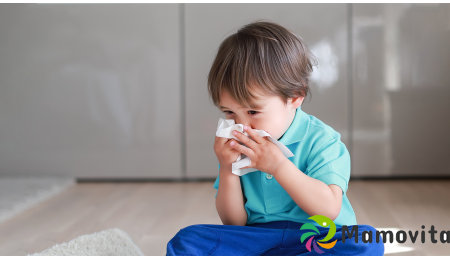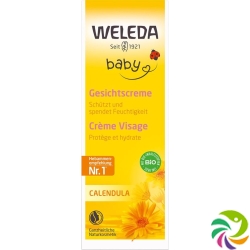Preventing Allergy in Infants and kids: Tips and Tricks for Parents

In recent years, there has been a substantial increase in the superiority of allergic reactions among infants and children. These allergies reactions can variety from food sensitivities to environmental factors, and they are regularly problematic for both children and their parents. Understanding the factors that contribute to this increase and learning how to effectively prevent and control allergies are essential to ensure your child's health and well-being.
Why Allergies Develop
Genetic and Environmental Factors
The development of allergies reactions is frequently the end result of an interplay between genetic predisposition and environmental impacts. Children whose family had allergic reactions are more likely to develop allergic conditions themselves. This genetic predisposition, mixed with environmental factors consisting of pollutants, diet, or exposure to certain allergens, substantially increases the chance of allergic reactions. For example, early exposure to allergens consisting of pollen, pet dander, or certain meals can trigger allergic reactions in genetically prone kids.
Development of the Immune System
Allergies occur whilst the immune system mistakenly identifies a harmless substance, which include pollen or a sure food, as a threat. In response, the immune system produces antibodies and releases chemicals such as histamine to combat the suspected invader, leading to allergic reactions. In early youth, the immune system is still growing and this can result in an overreaction to commonplace allergens. An increased immune reaction is manifested by symptoms such as itching, swelling, difficulty respiration or problems with the gastrointestinal tract.
Tips for Preventing Food Allergies
Introducing Solid Foods
Current guidelines suggest that solid foods, together with allergenic foods such as peanuts and eggs, have to be added around 4 to 6 months of age. Early introduction of these potential allergens, specifically in small, age-appropriate quantities, helps the immune system understand them as safe, doubtlessly lowering the danger of destined allergic reactions. It's vital to introduce new foods one by one, waiting a few days before including any other so you can reveal any reactions.
Monitoring of reactions
When introducing a brand new meal, cautiously monitor your baby for signs of an allergy. Symptoms consist of rash, hives, swelling of the lips or face, vomiting, diarrhea, or different gastrointestinal problems. If you observe any of those symptoms, stop feeding the new foods straight away and contact your pediatrician. Keeping a food diary is beneficial for keeping track of what foods were added and any reactions that have occurred, making it less difficult to pick out capability allergens.
Breastfeeding and Formula Feeding
Breast milk includes antibodies and other immunostimulating factors that reduce the chance of developing allergies through strengthening the toddler's immune system. This natural shape of allergic reaction prevention is specifically crucial in the first months of existence, whilst the immune system remains being formed. For parents searching out natural allergy relief for infants, breastfeeding is a great choice.
For families who can't breastfeed or have a history of allergies, deciding on the right infant formulation is critical. Hypoallergenic formulas are designed to decrease the danger of allergic reactions in babies. Such formulas encompass intensively hydrolyzed proteins or amino acids, which can be less likely to motivate an allergic reaction. When choosing a formula, consider the ones that are classified as hypoallergenic, in particular when you have allergies reactions in your family, For parents seeking out the best infant allergy medicine or infant antihistamines, a consultation with a pediatrician will assist make sure that the formula you choose is right for your baby's needs.
Balanced Diet and Nutrition
Including a variety of fruits, vegetables and probiotics for your baby's diet will assist enhance their immune system and potentially lessen the threat of allergies. Fruits and vegetables are full of vitamins, minerals and antioxidants that help health and proper-being. Probiotics, found in ingredients which include yogurt and fermented meals, support gut health, which is closely related to immune function. In cases wherein hypersensitive reactions do occur, having a children's antihistamine on hand can provide quick and effective relief to your child.
Skincare Products and Allergen-Free Solutions
When caring for sensitive skin, especially in infants and children, it is extremely important to pick hypoallergenic skin care products. Look for labels that say "hypoallergenic," "fragrance-free," and "dermatologist-tested," as those suggest that the product is less likely to cause a response. Ingredients such as aloe vera extract, chamomile, calendula and oats are often gentle and soothing, making them ideal for sensitive skin. Weleda Baby Calendula is an outstanding option to support the natural function of the skin and, with the mixture of almond oil and beeswax, maintains the skin supple and protects it from drying out. Calendula plant extract also soothes sensitive baby skin.
Avoiding irritants
To in addition shield sensitive skin, it is critical to avoid products that incorporate harsh chemicals, strong fragrances, or recognized allergens. Fragrances, even natural ones, can be a common source of irritation for sensitive skin. If possible, pick out products without fragrances. Also, be cautious with certain detergents and fabric that could come in contact with the skin and cause irritation.
If your infant is liable to allergic reactions or redness of the skin in the diaper place, Weleda Baby Calendula baby cream will reliably guard in opposition to redness and moisture in this sensitive area. Therefore, it's far from an ideal product for the care of very sensitive and sore skin. Zinc and skin-friendly wool wax reliably protect against moisture. Extracts of organic flowers of calendula and chamomile, as well as precious almond oil richly nourish and care for your baby's skin.
Disclaimer: The article consists of information about the prevention of allergies reactions in babies and kids and isn't medical advice. Always seek advice from your pediatrician with any questions you may have about allergies reaction treatment in toddlers and children.


